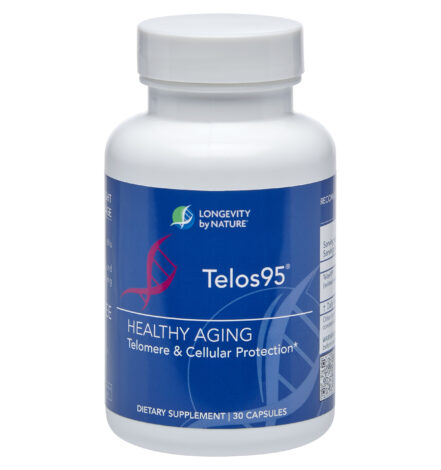Lowering blood sugar naturally is an important aspect of managing diabetes and improving your overall health. Here’s how to reduce blood sugar immediately:
Exercise Regularly
Regular physical activity is one of the most effective ways to lower blood sugar. When you exercise, your muscles need more glucose to meet the increased energy demand. This means they take up more glucose from the bloodstream, which leads to an immediate decrease in blood sugar levels. Aim for a mix of aerobic exercises like walking, swimming, or cycling, and strength training exercises several times a week.
Avoid Sugary Foods and Treats
Consuming foods high in sugar can lead to spikes in blood glucose levels, which can be harmful for those managing diabetes or trying to maintain stable energy levels throughout the day. Instead, focus on eating a balanced diet that includes whole foods, healthy fats, vegetables, and lean proteins to help keep your blood sugar levels steady.
If you have a sugar addiction, reduce or eliminate your sugar intake. Replace high-sugar foods with healthier alternatives like fruit instead of candy or processed snacks.
Increase the amount of protein like eggs and lean meats and healthy fats in your diet that will stabilize your blood sugar. Select natural sweeteners like fruits, which also provide fiber and essential nutrients, enhancing overall health to manage blood sugar levels.
By adopting these habits, you can overcome your sugar addiction and manage your blood sugar levels more effectively, leading to better overall health and wellness.
When to Eat
To naturally lower your blood sugar through meal timing, here are some strategies to consider:
- Consider Skipping Breakfast
Known as intermittent fasting, this approach extends the overnight fasting period. Research suggests that this can improve insulin sensitivity and reduce blood sugar levels, as it allows your body more time to deplete sugar stored in the liver.
- Do Not Eat 4 Hours Before Going to Bed
Refraining from eating at least 4 hours before bedtime can help prevent blood sugar spikes and improve the quality of your sleep. Overnight, your body focuses on repair and recovery rather than digestion, which can lead to better metabolic health.
- Consider Intermediate Fasting at Least 16 Hours per Day
Limiting your eating to a specific window during the day, typically for about 8 hours, while fasting for the remaining 16, can effectively regulate blood sugar levels. This pattern can prompt your body to burn stored fat for energy, potentially reducing insulin resistance.
Incorporating these eating patterns can be part of a strategy to manage or reduce your high blood sugar levels, along with regular physical activity and a balanced diet.
Stop Eating Even Though You’re Still Hungry
Listen to your body’s cues and stop eating before you feel full. This prevents the sharp spikes in blood sugar that occur after consuming large meals. Instead, eat smaller, more frequent meals throughout the day to maintain steady blood sugar levels. This can aid in better digestion and more consistent energy levels, reducing the risk of insulin resistance over time. Focusing on high-fiber, low-glycemic foods enhances this effect by slowing the absorption of sugar into your bloodstream.
Certain foods that lower blood sugar include Ceylon cinnamon, leafy greens, nuts and seeds, berries, fatty fish like salmon, sardines, and mackerel, high-protein foods, garlic, foods that are low in carbohydrates, and foods with a low glycemic index. Incorporating these foods into your diet can help manage and lower blood sugar levels naturally, with regular physical activity. The combination of foods you eat together can also be important when managing blood sugar levels.
Manage Your Sleep Rhythm
Managing your sleep rhythm is a way to naturally lower your blood sugar. Ensuring you have a regular sleep schedule can significantly impact your body’s ability to regulate your blood sugar level. Lack of sleep or poor-quality sleep can affect hormones that control appetite and insulin sensitivity, leading to increased blood sugar levels and a higher risk of type 2 diabetes.
Aiming for 7-8 hours of quality sleep each night helps regulate the hormones cortisol and leptin, which affect your body’s metabolism and appetite. Consistent, restful sleep supports the body’s natural ability to use insulin effectively and maintain stable blood sugar levels. Being well-rested reduces stress and fatigue, which can also contribute to better overall metabolic health. Implementing a consistent bedtime routine, limiting caffeine and blue light exposure before bed, and creating a comfortable sleep environment are all strategies to improve your sleep quality and help with blood sugar management.
Does Water Lower Blood Sugar?
Drinking water helps your kidneys flush out excess sugar through urine. Adequate water intake helps maintain blood volume and improves blood circulation, which helps transport glucose and insulin around the body.
While water doesn’t directly reduce blood sugar levels, it encourages overall hydration and metabolic function, which are both important for blood sugar management. Water is a calorie-free alternative to sugary drinks like soda, juice, or sweetened coffee and tea. Sometimes, thirst is mistaken for sugar cravings.
Support Your Body Minerals and Vitamins
Supporting your body with essential minerals and vitamins is another strategy for naturally lowering blood sugar. Magnesium is important for blood sugar and insulin regulation and is abundant in leafy greens, nuts, seeds, and whole grains. Chromium, which enhances insulin action, can be found in broccoli, oats, green beans, and potatoes. Vitamin D, important for managing insulin resistance, can be received from sunlight, fatty fish, and fortified foods. Alpha-lipoic acid, an antioxidant that improves insulin sensitivity, is in spinach, broccoli, and organ meats. Supplements are a common way to get higher doses of alpha-lipoic acid, for therapeutic benefits, like improving insulin sensitivity and reducing symptoms of diabetic neuropathy. B vitamins, essential for carbohydrate metabolism and inflammation prevention, are found in whole grains, meats, eggs, and nuts. Zinc, vital for insulin production and storage, is found in beef, shellfish, and seeds. Incorporating these nutrients can effectively help manage blood sugar levels. When dietary intake is insufficient, supplements provide a convenient, effective way to ensure you receive needed vitamins and minerals to support blood sugar management and overall health.
Educate Yourself: Read About Glucose Effects
Educating yourself about glucose effects and how to naturally manage blood sugar is essential for maintaining long-term health, especially if you are dealing with conditions like diabetes or prediabetes. Podcasts and books can offer you invaluable insights and actionable tips on how to manage your blood sugar naturally, helping you to make informed decisions about your health. Here are some resources to help you deepen your understanding:
Recommended Podcasts
Diabetes Connections: This podcast features interviews with experts in diabetes care and management, as well as real-life stories from those living with diabetes.
>> https://diabetes-connections.com/
The Sugar Science: Focuses on the latest research in diabetes and management strategies from scientists and clinicians worldwide.
>> https://thesugarscience.org/
Mastering Diabetes Audio Experience: Provides practical advice on managing diabetes through diet and lifestyle changes, focusing on low-fat, plant-based whole-food nutrition.
>> https://www.masteringdiabetes.org/podcast/
Recommended Books
“Dr. Bernstein’s Diabetes Solution” by Richard K. Bernstein: A complete guide to achieving normal blood sugars with a wealth of information on understanding diabetes and implementing a low-carbohydrate diet.
“The Diabetes Code” by Dr. Jason Fung: Explores the underlying causes of diabetes and how to reverse type 2 diabetes through dietary changes, including intermittent fasting.
“The Blood Sugar Solution” by Dr. Mark Hyman: Offers a comprehensive approach to reducing blood sugar levels and preventing diabetes, focusing on nutritional and lifestyle changes.

Manufactured in USA: We are a U.S. based company

Compliant With the United States Food & Drug Administration

Clinically Tested According to United States Government Regulations

Made By 100% Non-Genetically Modified Organisms







